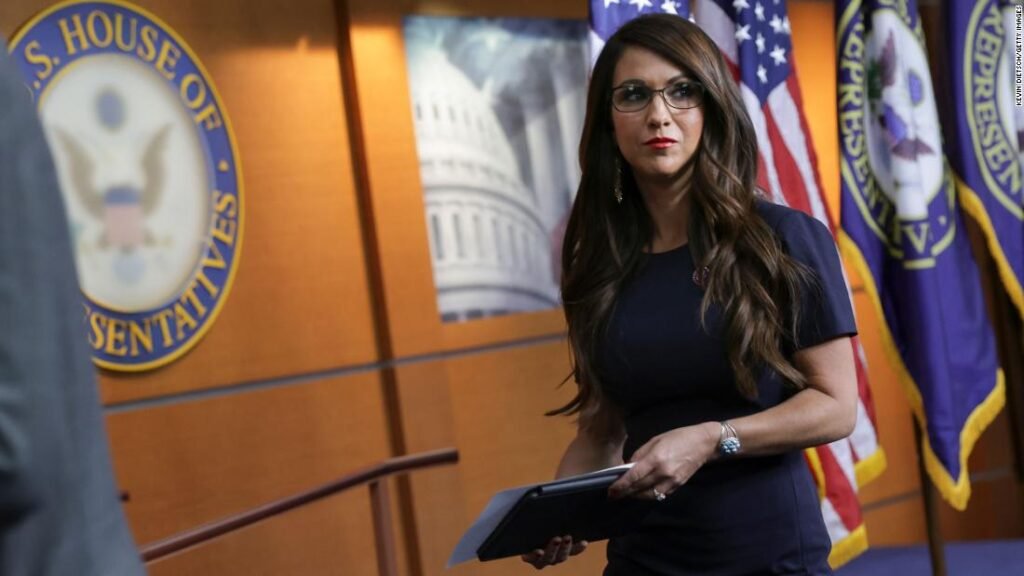Lauren Boebert rise in American politics has been both swift and marked by controversy. Since entering the political arena, Boebert has become a household name, known for her staunch support of Second Amendment rights, her alignment with the far-right faction of the Republican Party, and her headline-grabbing statements. This detailed exploration delves into Boebert’s political career, her ideology, and the impact she’s had on the political landscape, offering insights into her influence and the debates surrounding her actions and beliefs.
Early Life and Entry into Politics
Lauren Boebert’s journey to political prominence began far from the corridors of power in Washington, D.C. Born in Florida and raised in Colorado, Boebert’s early life was rooted in modest beginnings. Before her foray into politics, she was best known as the owner of Shooters Grill in Rifle, Colorado, a restaurant where staff members are encouraged to openly carry firearms. This establishment not only reflects Boebert’s staunch support for the Second Amendment but also set the stage for her entry into the political sphere.
Her political career officially started in 2020 when she announced her candidacy for Colorado’s 3rd Congressional District. Boebert’s campaign was characterized by her support for gun rights, her opposition to the so-called “socialist agenda,” and her endorsement of conservative values. In a surprising turn of events, she defeated five-term incumbent Scott Tipton in the Republican primary, leveraging her outsider status and tapping into the growing sentiment against the political establishment within the GOP.
Political Stance and Ideology
Lauren Boebert’s political ideology is firmly planted in the conservative wing of the Republican Party. She is a vocal supporter of gun rights, advocating for less restrictive gun laws and championing the Second Amendment as a fundamental American freedom. Her legislative priorities include reducing government oversight, opposing abortion, and securing the nation’s borders. Boebert is also known for her support of former President Donald Trump and his policies, particularly his stance on immigration and law and order.
One of the most distinctive aspects of Boebert’s political persona is her alignment with the far-right and her endorsement of various conspiracy theories, including those propagated by QAnon, though she has occasionally distanced herself from such associations. Her rhetoric and actions have made her a polarizing figure, drawing both fervent support and sharp criticism.
Impact and Controversies
Since taking office, Boebert has been at the center of several controversies, stemming from her confrontational style and divisive statements. Her use of social media and public appearances often amplifies her views, leading to national attention and debate. Critics argue that her approach undermines the decorum expected in political discourse and distracts from substantive policy discussions. Supporters, however, see her as a refreshing voice fighting against what they perceive as a drift toward leftist policies and a challenge to the political status quo.
Boebert’s impact on the political landscape extends beyond her legislative actions. She represents a broader trend within American politics towards more openly confrontational and polarized discourse. Her ability to command media attention has also underscored the power of personality in modern politics, where social media and sound bites increasingly shape public perceptions.
The Future of Boebert’s Political Career
Looking ahead, Lauren Boebert’s future in American politics will likely continue to be marked by her defiant stance on key issues and her role as a lightning rod for controversy. Whether her influence will grow within the Republican Party or her approach will limit her political aspirations remains to be seen. However, it is clear that Boebert has carved out a distinct identity in a crowded political landscape, and her actions will continue to resonate with a significant segment of the American electorate.
As the political climate in the United States evolves, figures like Boebert will undoubtedly play a critical role in shaping the direction of their parties and the national debate. Regardless of individual opinions on her politics, her impact on the discourse and her ability to mobilize support highlight the changing dynamics of American political engagement in the 21st century.
Conclusion
Lauren Boebert’s emergence as a prominent figure in American politics reflects broader trends towards polarization and the rising influence of far-right ideologies within the Republican Party. Her career thus far has been characterized by a mix of controversy, outspoken advocacy for conservative values, and a knack for capturing the public’s attention. As American politics continues to navigate through turbulent waters, Boebert’s role and influence will be subjects of keen interest and debate. Her story is a reminder of the complex and often contentious nature of the country’s political landscape, where figures like Boebert both reflect and shape the currents of the time.

